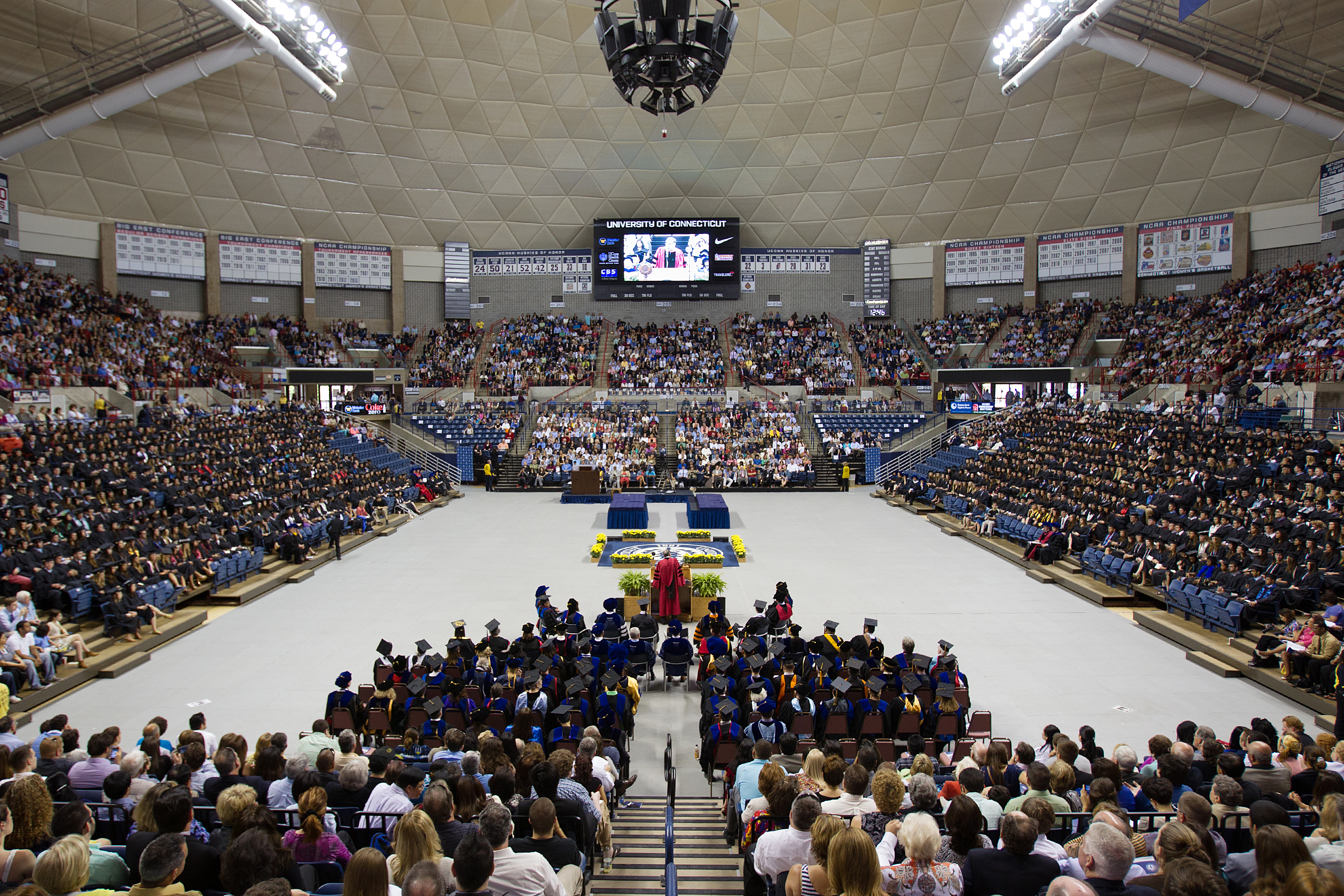UConn’s Counseling Program for Intercollegiate Athletes has been renamed the Student-Athlete Success Program, in recognition of the comprehensive support services the program now provides to student-athletes.
The services that UConn offers to our student-athletes are very diverse and deep. — David Benedict
The CPIA was established in the early 1980s under director Donald Kinsman to ensure that student-athletes at UConn have every opportunity to earn their undergraduate degree from one of the country’s top public research universities while competing athletically at the highest level.
While the program’s basic mission remains unchanged, over time the University has added more specialized services to meet the growing needs of student-athletes.
“The life of a student-athlete is more challenging than ever,” says David Benedict, director of athletics. “The services that UConn offers to our student-athletes are very diverse and deep. The new name of Student-Athlete Success Program more accurately describes what is offered by the very talented staff of that office.”
The Student-Athlete Success Program is a comprehensive support program for all student-athletes, that begins with the recruiting process and concludes well after graduation. Services include individualized academic support, skill and career development, and community service and leadership opportunities.
The staff of the program has grown over the years, as the demands on student-athletes have increased nationally. A full-time community service and student development coordinator was hired in 2013, thanks to a partnership with the SBM Foundation Inc.; and in 2016, a full-time tutoring coordinator was added to run the tutoring program.
The leadership of the program works closely with the vice provost for academic affairs, Sally Reis, to ensure that the student-athlete population consistently reaches a high level of academic success.
The average grade point average of UConn student-athletes has consistently been over 3.0. Student-athletes have diverse academic interests, and are represented in all of UConn’s schools and colleges. Many student-athletes are involved in various enrichment programs offered by the University, such as the Honors Program, Individualized Studies, and the Education Abroad program. (Read about some of our high-achieving student-athletes in our ‘Student-Athlete Strong‘ series.)
There is also a commitment to helping student-athletes develop into strong leaders as they graduate from UConn and enter the next phase of their lives:
- The program offers career development workshops, such as resume writing and networking. And this past fall, there was a “Husky To Husky” career fair featuring former student-athletes who are now succeeding in various businesses.
- Student-athletes also take part in financial education workshops, thanks to a collaboration with Morgan Stanley.
- There have been special educational sessions such as “Mentors in Violence” and “Branded as a Leader” for all student-athletes.
- Last spring, in partnership with ESPN, the center offered a program called “The Great Pivot,” to prepare female student-athletes for life after college.
- “Husky Leads,” a new program started this fall, is a year-long leadership training program for student-athletes identified as potential leaders.
“Our program has continued to change and grow on a constant basis,” says Ellen Tripp, director of the Student-Athlete Success Program. “We felt our old name had become outdated and did not reflect our current mission statement or services. We thought it was important to change the name of our program to accurately reflect all the services our program encompasses.”



